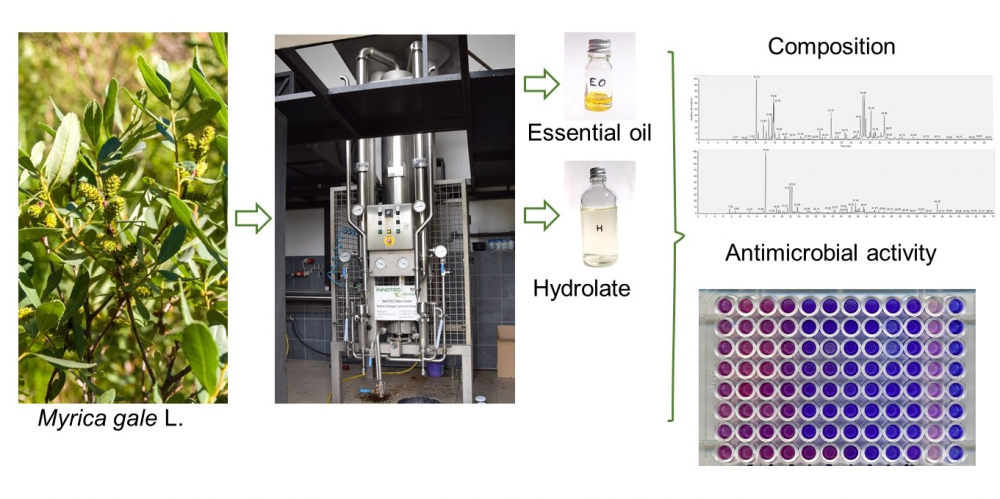JOURNAL 1628
Records of Natural Products
Year: 2021 Issue: 1 January-February
p.35 - 45
Viewed 4805 times.
GRAPHICAL ABSTRACT

ABSTRACT
Myrica gale L. (sweet gale) leaves and flowers were subjected to industrial steamdistillation in order to obtain essential oil and hydrolate. Obtained products were investigated to determine their chemical composition and antimicrobial activity. The main components found in both leaf and flower essential oils were monoterpene hydrocarbons: α-pinene (12.3, 23.5.%), p-cymene (12.8, 4.9%), and limonene (11.0, 5.6%), respectively. While oxygenated monoterpenes: 1,8-cineole (28.6, 44.2%), terpinen-4-ol (14.3, 13.4%), and α-terpineol (15.6, 11.3%) were dominant compounds in leaf and flower hydrolates. Essential oil and hydrolate from M. gale leaves exhibited antimicrobial activity against obligatory and opportunistic bacterial pathogens such as Staphylococcus aureus, Escherichia coli, and Enterococcus faecalis. Interestingly, the leaf essential oil, but not the hydrolate, was also active against Candida albicans and Candida glabrata – yeast included in human skin and mucous membrane microbiota and simultaneously important fungal pathogens.
KEYWORDS- Sweet gale
- monoterpenes
- antimicrobial activity